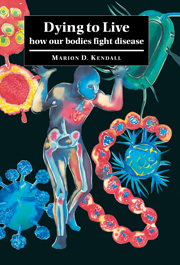6 - The Main Campaigns
Published online by Cambridge University Press: 29 September 2009
Summary
Malaria Most people will have heard of malaria. It was called Jungle fever in World War II, and Marsh fever by ancient Britons. All travellers are warned to protect themselves if they are visiting a malaria area, such as Africa, Asia, Central America and South America. Other more temperate countries like the United Kingdom can also have malaria outbreaks but these are largely past history. The World Health Organisation has estimated that there are probably 300–500 million cases of malaria a year. This means that it is one of the most prevalent and severe diseases of the tropics. The malaria parasite shares its complex life style with Man and an insect vector, the Anopheles mosquito. Mosquitoes can move over large areas of land and take blood from other animals, as well as Man. There are many forms of malaria and several vectors, but all cause cycles of fever and attack red blood cells. Chronic malaria can result in profound anaemia, loss of weight, depression, enlargement of the spleen, muscular weakness and oedema or fluid retention in places such as the ankles. Cerebral malaria is often fatal. Prophylactic medicines protect travellers, but must be started before travelling and continued afterwards. There are no good vaccines at present, although several have been tested. Until these are available, protecting oneself from being bitten by mosquitoes in endemic areas is still the best way to avoid the disease.
- Type
- Chapter
- Information
- Dying to LiveHow our Bodies Fight Disease, pp. 93 - 108Publisher: Cambridge University PressPrint publication year: 1998



